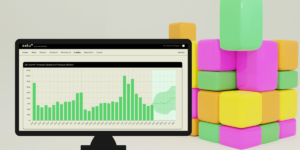Demand and lead generation are both vital tools in modern marketing for discovering new prospects. Even though it’s important to understand the differences between them, it’s more advantageous to grasp how they can complement each other for maximum results. In this article, we’ll explore the distinction between demand and lead generation, and how we can use them to drive customer-based growth in unique ways.
Grasping the Differences Between Demand Generation and Lead Generation
Demand generation aims to build brand awareness and authority with as many people as possible. Through this tool, you can reach audiences and build trust with prospects by positioning yourself as a thought-leader in your industry. Demand generation capture’s audiences’ attention by making them aware of a problem and educating them about how you can provide the solution. It attracts onlookers with free resources like blogs, articles, and webinars and gets them excited about what you have to offer.
Lead generation focuses on using demand to capture information on a more specific audience of qualified leads. This tool continues to nurture the target audience about the benefits and solutions you offer, differentiates you from competitors, gathers lead contact information, and converts potential buyers into customers. Lead generation typically uses gated content like white-papers, eBooks, survey reports, and landing pages with lead generation forms.
Which is Right for Your Business: Demand Generation or Lead Generation?
Now that we have a better understanding on what demand and lead generation mean, we can better decide which would be more beneficial for your business. We’ve broken down the goals and impacts of each below to make landing on a marketing strategy easier.
Demand Generation
- Begins higher up on the sales funnel
- Connects with a wide audience
- Builds brand awareness and authority
- Makes the audience aware of a problem
- Utilizes free resources
- Engages prospects without commercial intent
Lead Generation
- Takes place once prospects pass through the demand stage
- Aims to capture quality leads
- Highlights your brand’s unique benefits
- Offers the audience a solution to the problem
- Relies on gated resources
- Converts leads into customers
How Can Extu Lend You a Helping Hand with Demand and Lead Generation?
At Extu, we assist partners through the process of lead generation through our sponsored marketing programs and proprietary technology that identifies lead intent and tracks prospect engagement, so you know who’s interested in your business. Then we take the next step and make selling efficient for partners with sales enablement resources developed by experienced business experts.



